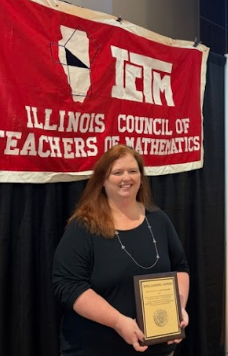In years past, the Free Application for Federal Student Aid, more commonly known as the FAFSA, has been an integral part of college admissions.
The aid that students receive through the FAFSA is a large determining factor in the college that students will ultimately commit to and attend. However, this year major changes were made to the FAFSA.
This year’s FAFSA featured fewer questions, down from 118 to just 36, with some students being able to skip as many as 26 questions within that.
Additionally “the government changed the way they deliver the FAFSA, which entailed a format programming change around how it is accessed and submitted,” said Thaddeus Sherman, a counselor at Oak Park River Forest High School who has guided many students through the college admissions process.
The major changes to the FAFSA this year were due to the FAFSA Simplification Act, set for implementation in the current award year (2024-25), according to Federal Student Aid, an office of the U.S. Department of Education.
This act originally began in hopes that “…the FAFSA would better serve applicants and provide more accessibility,” said Sherman. In this final year of implementation, more aid became available to low-income students, with Federal Pell Grants becoming available to an estimated 7.3 million more low-income students this award year.
Additionally, what was formerly known as the EFC, or Expected Family Contribution, has been changed to the SAI, or Student Aid Index. The SAI is used for colleges to calculate the amount and type of aid that a student is eligible for, and with the change in name also came a change in the method of calculation, in hopes that more students would be able to receive the aid they need.
However, these changes also came with drawbacks. The changes that ultimately occurred in the FAFSA led to many admission-defining dates for students to be pushed back. “They initially gave us a Dec. 1 delivery date, which ultimately became a Dec. 31 soft roll-out, albeit with continued issues and problems. It has most recently been available by Oct. 1, so essentially three months later than usual. The digital format, the online platform, all the things associated with it continued, in my opinion, to push the delivery back which has resulted in the entire FAFSA process being delayed for students and universities,” said Sherman.
In this delay, students applying to college for the 2024-2025 school year are still currently unaware of the amount of federal aid they will receive, leading to lack of clarity as to which college they should choose.
“The FAFSA debacle definitely delayed my college decision and still has to date (as of April 9, 2024). I am still waiting to receive my financial aid packages from most of my schools, and I do not plan on making these big investments in my education blindly,” said Jude Kennedy, current senior and college applicant.
However, amidst the confusion of the FAFSA, many colleges have been accommodating their applicants. “A few of my schools were generous enough to push back the deadline to commit by to early June, so that was really beneficial when it came to sorting out all things regarding finance and whether or not I am comfortable putting down a down payment on a school I may not even be able to afford,” said Kennedy.
Beyond the challenges that arose from the changing dates, some students even experienced technical difficulties. “Filling out the form itself was all right, but trying to actually complete it was frustrating,” said senior and college applicant Lindsay Chyna. “Once I finished it, I repeatedly got notifications that it wasn’t done even though it was, so I was left with a lot of uncertainty of whether I did it right.”
Both Chyna and Kennedy, along with many other current seniors, have been admitted to multiple colleges but are currently unsure of where to attend due to the issues that arose with the FAFSA this award year.
“Maybe you get into your number one university and you love it and you want to go but you just cannot afford to do so,” said Sherman. “Sometimes, you have to make a really hard decision. It can be a difficult conversation to have. There can be tears! College is increasingly expensive and conversations about financing college can be really challenging for families and students.”
However, despite the current struggles there is hope that the FAFSA will be much smoother next year. “I anticipate there will be some ripple effects next year, but I am hopeful that it will be a smoother process overall. We should have firmer clarity around timelines so that students, families, and schools can engage in the process more efficiently and effectively,” said Sherman.






